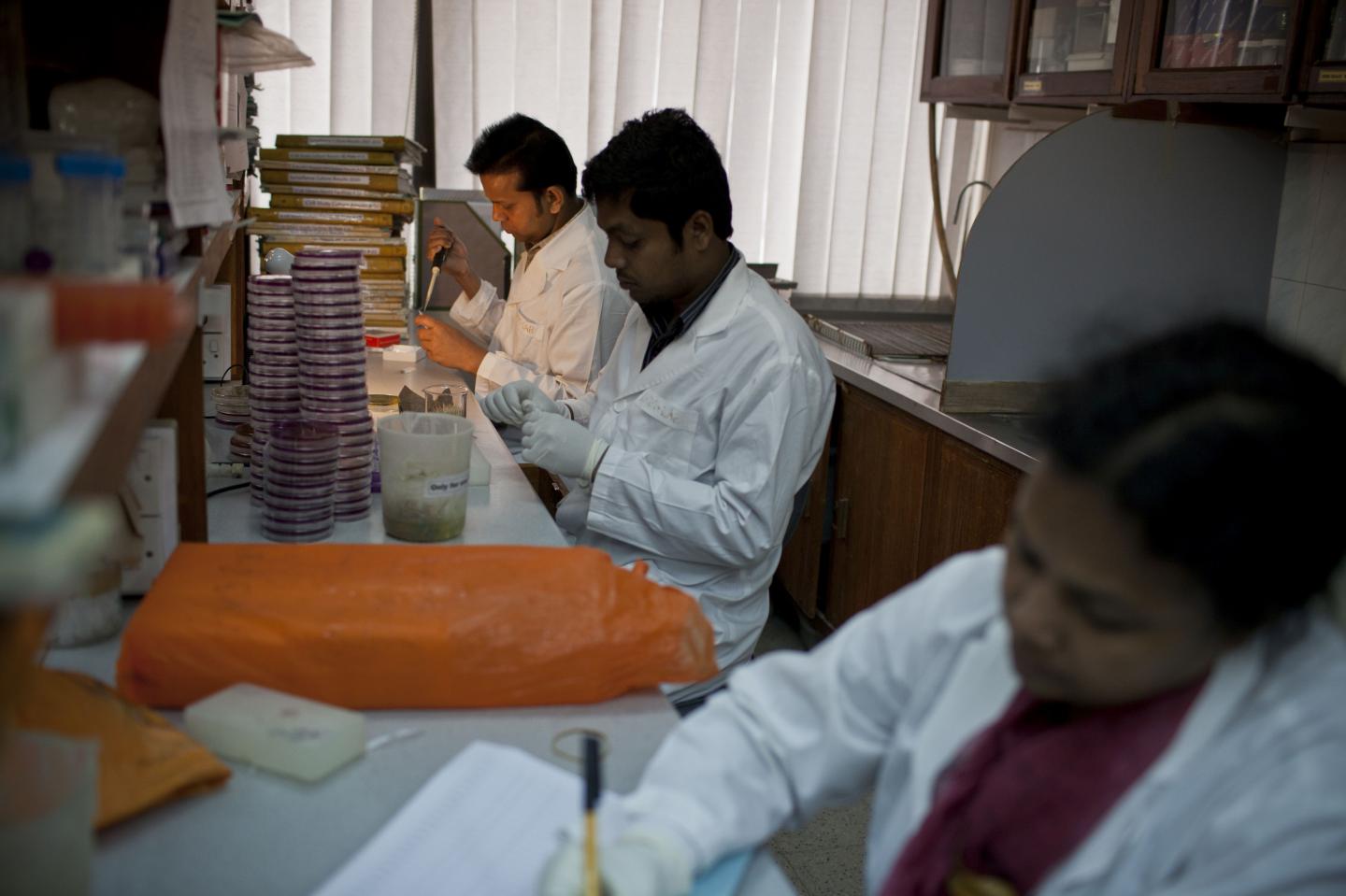
Credit: Conor Ashleigh, Department of Foreign Affairs and Trade, (CC BY 2.0, 2012)
Recently, the sensitivity of fecal microbiological cultures for detecting cholera has come under question. Researchers reporting in PLOS Neglected Tropical Diseases investigated this claim using a ‘vaccine probe’ analysis of a completed cholera vaccine cluster randomized trial to support the sensitivity of conventional microbiological culture for cholera.
An estimated 2.9 million cases and 95,000 deaths occur each year due to cholera, and microbiological cultures of stools are considered the gold standard for diagnosing cholera. However, one recent study, conducted in Bangladesh, found that conventional cultures identified only 66% of patients who were found to have cholera by other measures. This suggests that cholera globally may be widely underestimated.
John D. Clemens, of the International Centre for Diarrhoeal Disease Research, Bangladesh, and colleagues from both Korea and the US, re-analyzed the data of a phase III trial for a killed oral cholera vaccine (OCV) conducted in Bangladesh in 1985. In the trial, 50,779 people received at least two complete doses of either OCV or placebo. The researchers reasoned that if the culture was not sensitive for cholera, the OCV should reduce cases of acute watery diarrhea (AWD) which were negative for Vibrio cholerae, the bacteria causing cholera.
During two years of follow-up, 791 first episodes of AWD were reported and tested using microbiological culture; 365 of those were culture-positive for Vibrio cholerae. Of the culture-negative cases, 215 occurred in the group that received the OCV and 211 in the group that received a placebo. There was no statistically significant difference in culture-negative AWD between those that received a vaccine and those that received a placebo.
“We did not find any evidence of protection, implying that the culture diagnostics used for cholera detection were reliable,” the researchers say. “Similar analyses of other OCV randomized controlled trials are recommended to corroborate these findings.”
###
In your coverage please use this URL to provide access to the freely available paper: http://journals.
Citation: Im J, Islam MT, Ahmmed F, Kim DR, Chon Y, et al. (2019) Use of oral cholera vaccine as a vaccine probe to determine the burden of culture-negative cholera. PLOS Neglected Tropical Diseases 13(2): e0007179. https:/
Funding: The authors received no specific funding for this study.
Competing Interests: The authors declare that no competing interests exist.
Media Contact
Justin Im
[email protected]
Related Journal Article
http://dx.




